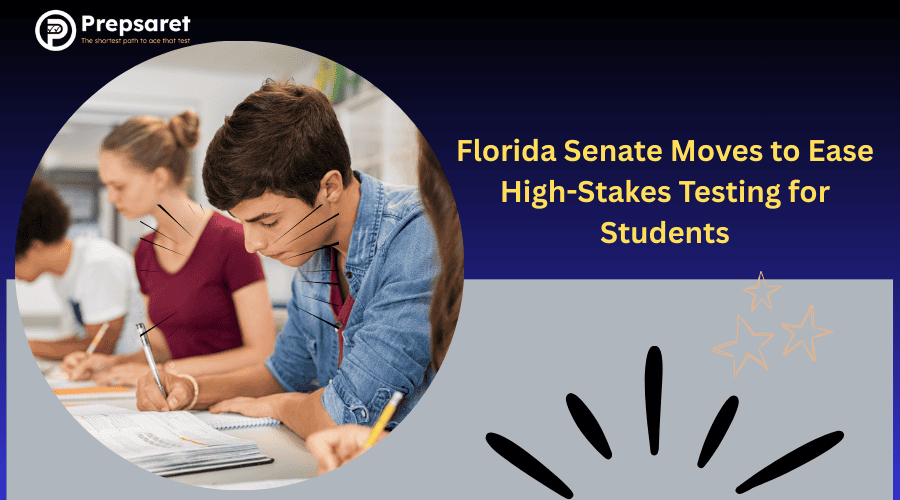A sweeping education reform bill passed unanimously by the Florida Senate on Thursday would significantly reduce the stakes of standardized testing in determining students’ academic futures.
The legislation, SB 166, led by Sen. Corey Simon (R-Tallahassee), proposes ending the requirement that high school students pass the Math and Grade 10 English Language Arts assessments to graduate.
Instead, students will need only to pass the respective courses, with the test contributing 30% of the final grade. Proponents argue the change recognizes the limitations of one-size-fits-all testing.
Promoting Students Based on Progress, Not One Test
The bill also revises third-grade reading promotion policies. Students who score the lowest level (1 out of 5) on the final reading test can still be promoted to fourth grade if they score at least a 2 on the two earlier progress monitoring assessments.
The change builds on Florida’s shift away from the Florida Standards Assessments (FSA) in 2022 toward a progress-monitoring system that evaluates student performance throughout the year.
“Some of our kids just struggle with tests,” Simon said. “But if their record shows growth and mastery, we shouldn’t hold them back for a single bad day.”
The proposal has drawn bipartisan support. Sen. Rosalind Osgood (D-Tamarac) praised the move as a relief for students and school leaders, emphasizing the importance of fostering learning over rote testing. Senate President Ben Albritton echoed these sentiments, saying the bill ensures all student work counts toward advancement.
Concerns Over Accountability and Standards
However, the bill has drawn criticism from education advocacy groups like ExcelinEd, founded by former Governor Jeb Bush, which argues the changes weaken standards and obscure whether students meet proficiency benchmarks.
“These proposals will make it harder for parents and teachers to know if kids are ready to take the next step after high school,” said Patricia Levesque, the group’s executive director.
Despite opposition, the legislation reflects a broader shift in educational philosophy, focusing more on holistic learning and reducing stress. As Simon noted, “We’re not reducing rigor. We’re recognizing that achievement goes beyond a single test.”
The bill awaits consideration by the Florida House, where a companion version has yet to be introduced. If passed and signed into law, it would take effect in July 2025.

